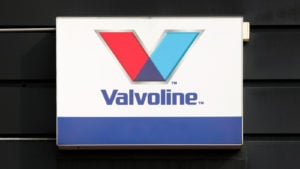Since the early days of the pandemic, the energy sector, which is a crucial part of our economy, has come under significant pressures. As a result, most energy stocks have hit multi-year lows.
Although some of them have recovered, not all are out of the woods yet. Meanwhile, there is increased investor appetite for shares of alternative energy companies.
“With prices and demand likely to stay depressed at least in the short to medium-term, one can expect reduced investments in drilling and refining capacity by oil companies,” says Mahesh Srinivasan, associate professor and director of the Institute for Global Business at the University of Akron. “Demand for oil on account of transportation is likely to continue to fall, however a rise in industrial demand due to a rebound in economic activity holds some hope; however a return to pre-2020 levels seems far away.”
With that information, here are three energy stocks to buy now:
Energy Stocks to Buy: Brookfield Renewable (BEP)

52-week range: $24.06 – $56.07
Dividend yield: 3.2%
We are witnessing a secular shift from fossil fuels to alternative energy, and our first stock could pique your interest if you are following this shift. So far in the year, the renewable energy sector has remained robust and resilient.
Brookfield Renewable has an investment portfolio of over 5,000 power-generating facilities worldwide. The portfolio comprises hydroelectric (about 64%), wind, solar energy as well as storage facilities in the Americas, Europe and Asia. Its revenue depends on selling the energy produced the portfolio of renewable assets.
Earlier in August, the group reported metrics for the three and six months ended June 30, 2020. Its quarterly revenue for the three months ended June 30 came at $651 million. A year ago, the number had been $787 million. Funds from operations were $232 million, up slightly from the same quarter last year.
After deducting non-cash depreciation, quarterly net loss attributable to unitholders was $44 million, or 14 cents per unit. It has $3.4 billion of liquidity available .
In 2020, BEP stock is up over 15%. The group’s global outreach, asset base and experience in the sector makes it a strong play. Next earnings report is expected in early November.
Cheniere Energy (LNG)

52-week range: $27.06 – $67.11
Dividend yield: N/A
Houston-based Cheniere Energy is a full-service liquefied natural gas (LNG) provider. It has liquefaction platforms terminals in the U.S. Gulf Coast. Its operations also extend to procurement transportation, vessel chartering, and LNG delivery.
In August, the group reported Q2 results. Revenue came at $2.4 billion, up 5% from a year ago. Net income was $197 million, or 78 cents per share. A year ago, it had been a net loss of $114 million, or a loss of 44 cents per share.
Year-to-date, LNG stock is down around 16%. Analysts concur the LNG business will likely expand stateside and globally in future quarters. If you believe LNG prices around the world are likely to go up in the coming months, then a position in one of the top names in the field could be appropriate.
Energy stocks: Valvoline (VVV)

52-week range: $9.06 – $23.90
Dividend yield: 2.2%
Our final stock is an indirect play on car and vehicle use and servicing. Lexington, Kentucky-based Valvoline, whose history goes back to 1866, provides lubricants and automotive services worldwide. In 2017, it was spun off from global specialty chemicals company Ashland (NYSE:ASH).
Several of its brands InvestorPlace.com readers are likely to know include Valvoline Instant Oil Change, Valvoline High Mileage, Valvoline Advanced Full Synthetic motor oil; Valvoline Premium Blue™ heavy-duty motor oil; Valvoline Multi-Vehicle Automatic Transmission Fluid; and Zerex antifreeze. In fact, it was the first trademarked motor oil brand in the U.S.
Valvoline operates and franchises around 1,400 Quick-Lube locations, which provide oil change services. Earlier in October, Valvoline announced plans to acquire 33 Quick-Lube service centers in Idaho, Missouri and Kansas in two separate acquisitions.
In August, the company released Q3 results. Sales came at $516 million, a decline of 16% YoY. Similarly net income decreased 9% to $59 million. Earnings per diluted share (EPS) was 32 cents, a decline of 6% YoY. Its liquidity stands at $1.3 billion available in cash.
So far in the year, VVV shares are down about 6%. We believe the company will continue to expand its operations both organically and through acquisitions both in the U.S. and globally. We’d look to buy the dips.
On the date of publication, Tezcan Gecgil did not have (either directly or indirectly) any positions in the securities mentioned in this article.
Tezcan Gecgil has worked in investment management for over two decades in the U.S. and U.K. In addition to formal higher education in the field, she has also completed all 3 levels of the Chartered Market Technician (CMT) examination. Her passion is for options trading based on technical analysis of fundamentally strong companies. She especially enjoys setting up weekly covered calls for income generation. She also publishes educational articles on long-term investing.
